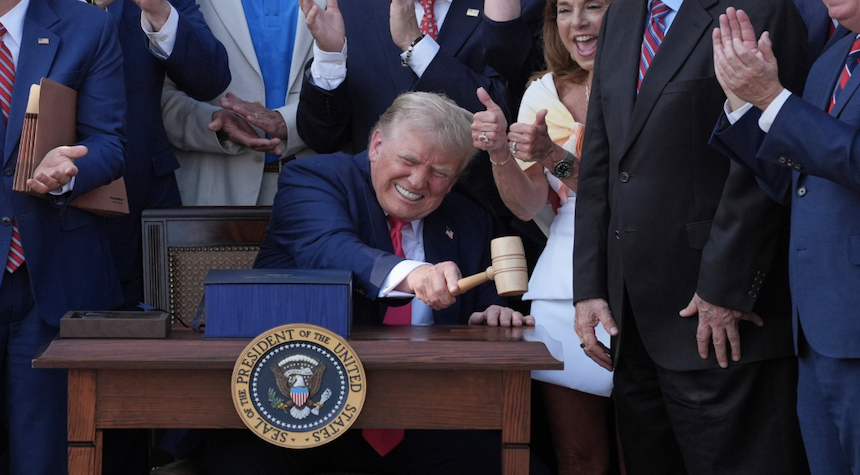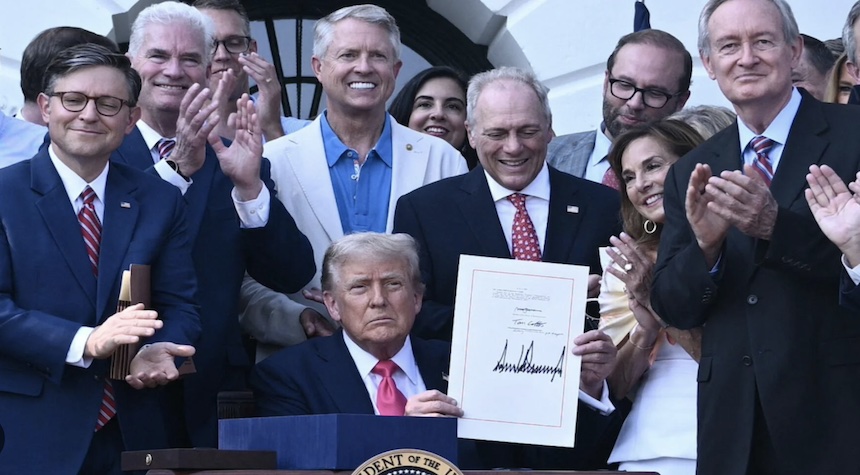President Donald Trump has signed into law a sweeping package of tax cuts and spending measures, marking a significant legislative victory for his administration. The bill, which passed Congress with near-unanimous Republican support, was signed at the White House during Fourth of July celebrations.
The legislation extends the 2017 tax cuts and implements substantial reductions in Medicaid and food stamp programs, totaling $1.2 trillion. It also provides for increased immigration enforcement. According to the nonpartisan Congressional Budget Office, the bill is projected to add $3.3 trillion to the deficit over the next decade and result in approximately 11.8 million more Americans without health insurance.
The bill represents a significant shift from the policies of former Presidents Barack Obama and Joe Biden, effectively rolling back key elements of their agendas, including the Medicaid expansion under the Affordable Care Act and tax credits for renewable energy.

Reports indicate that the legislative process was not without controversy. In the House, Democratic leader Hakeem Jeffries of New York delivered a marathon speech opposing the bill, describing it as “a crime scene” against the American people. The Senate passage came down to a single vote, with Vice President JD Vance casting the tie-breaker.
Both sides of this issue present compelling arguments. Supporters of the bill, primarily Republicans, argue it will stimulate economic growth and reduce government spending. Critics, mainly Democrats, contend it disproportionately benefits the wealthy at the expense of lower-income Americans.

The legislation is likely to be a central issue in the upcoming midterm elections, with Democrats already planning extensive campaigns to highlight its more controversial aspects.
Public opinion on the bill appears mixed. A Washington Post/Ipsos poll suggests that while some elements of the legislation are popular, such as increasing the child tax credit, majorities oppose others, including reduced funding for food assistance programs.
This raises important questions about the long-term economic and social impacts of these policy changes. As the situation develops, it will be crucial for the American public to stay informed and engaged in the democratic process.


